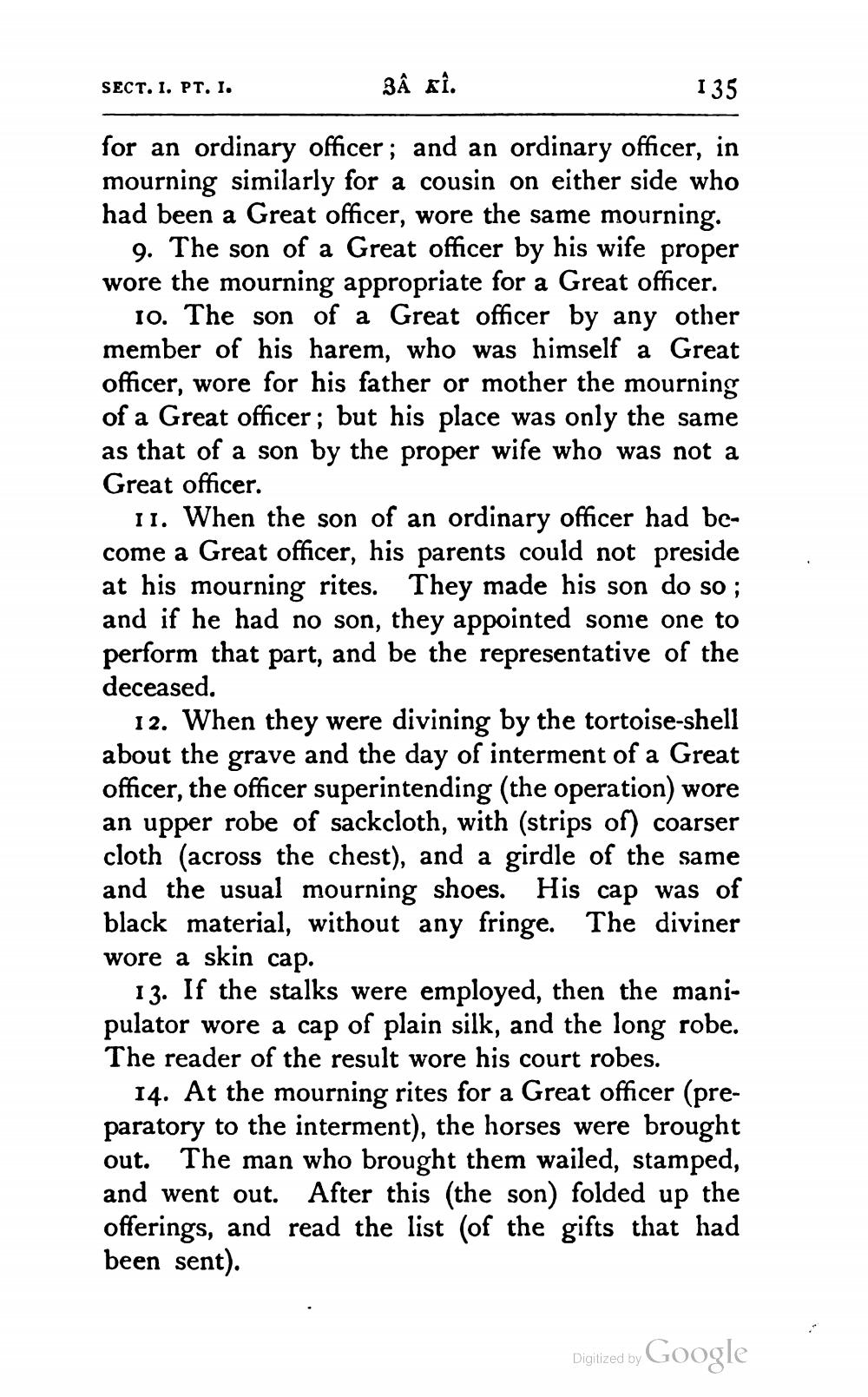________________
SECT. I. PT. I.
BA KÍ.
135
for an ordinary officer; and an ordinary officer, in mourning similarly for a cousin on either side who had been a Great officer, wore the same mourning.
9. The son of a Great officer by his wife proper wore the mourning appropriate for a Great officer.
10. The son of a Great officer by any other member of his harem, who was himself a Great officer, wore for his father or mother the mourning of a Great officer; but his place was only the same as that of a son by the proper wife who was not a Great officer.
11. When the son of an ordinary officer had become a Great officer, his parents could not preside at his mourning rites. They made his son do so ; and if he had no son, they appointed some one to perform that part, and be the representative of the deceased.
12. When they were divining by the tortoise-shell about the grave and the day of interment of a Great officer, the officer superintending (the operation) wore an upper robe of sackcloth, with (strips of) coarser cloth (across the chest), and a girdle of the same and the usual mourning shoes. His cap was of black material, without any fringe. The diviner wore a skin cap.
13. If the stalks were employed, then the manipulator wore a cap of plain silk, and the long robe. The reader of the result wore his court robes.
14. At the mourning rites for a Great officer (preparatory to the interment), the horses were brought out. The man who brought them wailed, stamped, and went out. After this (the son) folded up the offerings, and read the list (of the gifts that had been sent).
Digitized by
Digited by Google




